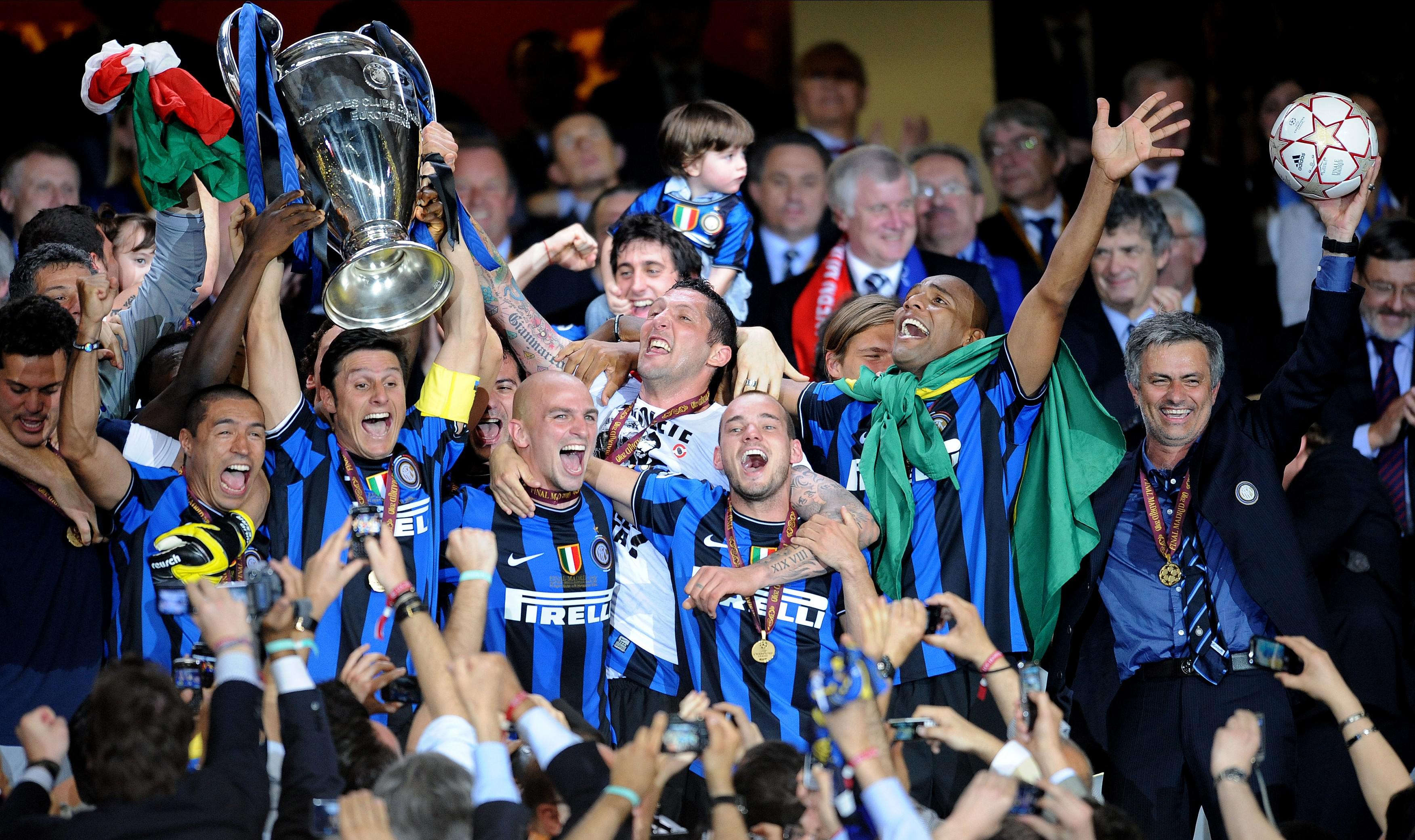Di Maria shines as United stutter: Is the player really to blame for Old Trafford nightmare?
The Argentina international is back to his brilliant best over in Ligue 1 this year. Alex Hess analyses why his big-money move to the Premier League in 2014 didn't work out...
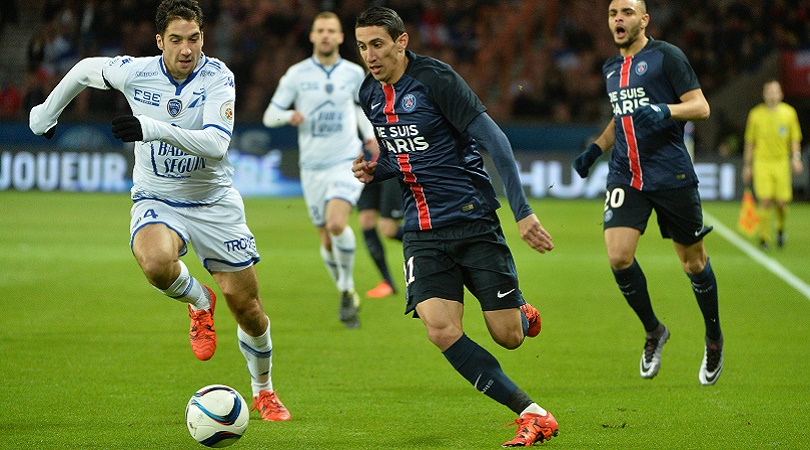
You could forgive Manchester United fans in recent months for getting the distinct feeling that their treatment at the hands of the football gods has gone from simple unkindness to active mockery. If having to put up with the sleep-inducing fare served up so often at the Theatre of Dreams wasn’t painful enough – and it’s not an endurance today’s Old Trafford regulars have had much training for – then seeing an array of cast-offs excelling across Europe piles salt onto the gaping wound.
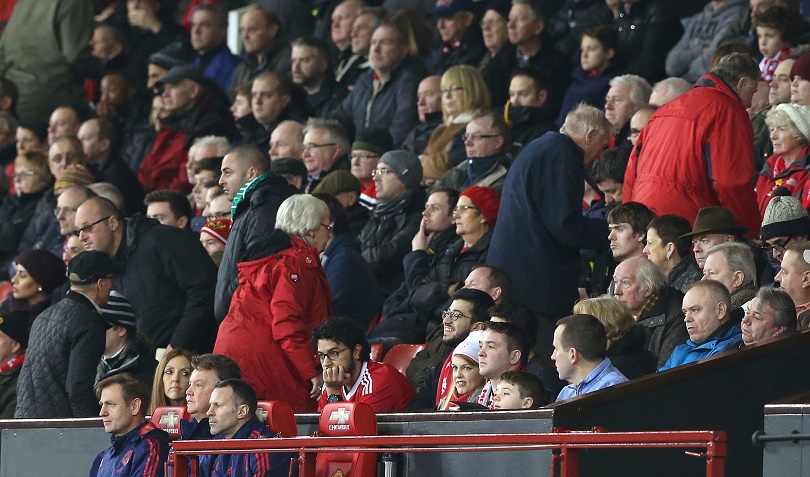
As United have struggled to make sense of a setup that seems to have outlawed spontaneity, Robin van Persie and Nani, two recently departed improvisers, are on course to collect league winners' medals in Turkey. In the Bundesliga, Javier Hernandez’s relinquishing of the bit-part role offered by Louis van Gaal has seen him launch straight into the form of his life: his tally of 12 league goals is five more than United’s top marksman. Shinji Kagawa has rediscovered his mojo since returning to Germany, and has doubled the number of assists of any United player this term. And perhaps it’s best not to mention Paul Pogba.
Contented again
The most gut-wrenching form of any United exile, though, has come in Ligue 1, where Angel Di Maria, who spent the vast majority of his time in Manchester wearing the expression of a man who’s just put a cuppa on to brew only to find there’s no milk in the fridge, has acclimatised to his new job rather nicely indeed.
Since moving to PSG, Di Maria has directly contributed to goals – which is to say, scored or set them up – at a faster rate than he has racked up appearances
In recent weeks, especially, Di Maria has produced as a matter of habit the sort of show-stopping magic that only ever came in taster-sized packages at United.
His blistering long-range strike to see off Toulouse followed a ravishing brace against Angers the previous weekend – the first a twisting, arcing 20-yard volley, the second a lofted chip – to cap off what is surely the most dazzling spell of the Argentine’s career.

Di Maria volleys in from the edge of the area against Angers
Get FourFourTwo Newsletter
The best features, fun and footballing quizzes, straight to your inbox every week.
In a squad tightly packed with probing technicians – Marco Veratti, Javier Pastore and Lucas Moura are just three of his most immediate rivals – Di Maria has already proven himself the standout architect. Since moving to PSG, Di Maria has directly contributed to goals – scored or set them up – at a faster rate than he has racked up appearances. So far he’s notched 12 from his nominal position on the right and, judging by the rather crude metric of “key passes”, he is in the continent’s five most prolific creators, too (alongside Mesut Ozil, Dimitri Payet, Kevin De Bruyne and Neymar). All that, plus a league title that’s effectively already in the bag. Not a bad first half-season for a man infamously averse to settling into new surroundings.
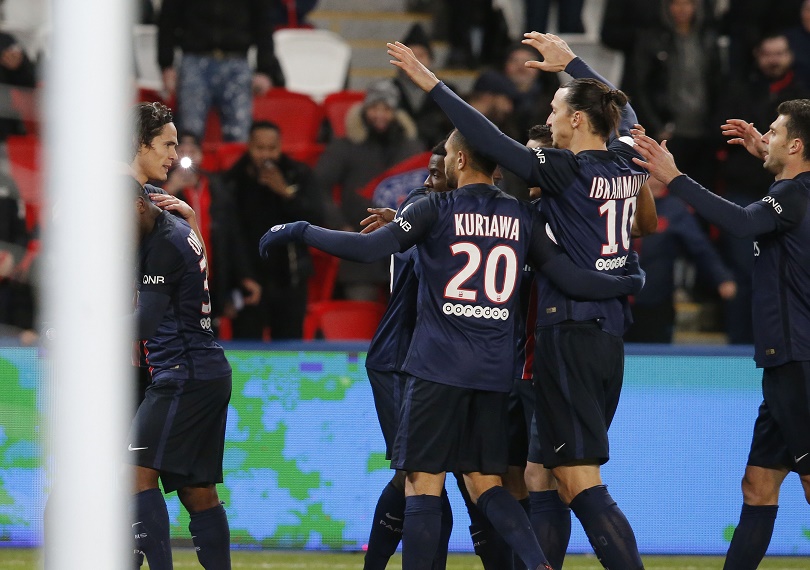
Easier environment?
The warped climate which has delivered his recent magnificence makes it nigh-on impossible to settle on any sort of an exchange rate
There are, of course, many who would look and all this and stress just how heavily it is caveated by context. Which is to say: how much can it count for within a fundamentally anti-competitive league? It’s a fair point – PSG’s lead at the top currently stands at 24 points – and one that many English fans would only see as being underlined by the sight of perennial Premier League misfit Hatem Ben Arfa slicing through Ligue 1 defences at will this term, or of Spurs second-stringer Benjamin Stambouli slotting seamlessly into the champions’ midfield behind Di Maria and co.
It’s a debate that extends far beyond the relative merits of Di Maria’s last few weeks of form. The broader point, though, is that the warped climate which has delivered his recent magnificence makes it nigh-on impossible to settle on any sort of an exchange rate.

Di Maria's exquisite dribbling leads to another chance against Toulouse
Free spirit
This has become especially obvious in light of a broader trend that has emerged this term: the form of almost all of United’s flair players has nosedived spectacularly under Van Gaal
What’s less debatable is just how different a player Di Maria has looked since his move, in demeanour as much as output. When on top of his game, he is a best-of-both-worlds hybrid of flying winger and impudent playmaker, his delicate physique counterbalanced by his brutally heavyweight technical ability, and equally able to circumvent defenders with a pass or a dribble.
Seeing him flick this switch with such apparent ease must be doubly frustrating for Old Trafford regulars not only because he specialises in exactly the sort of high-tempo razzmatazz that his former club so likes to define itself by, but also because it is what Van Gaal’s men have made a habit of looking actively incapable of.
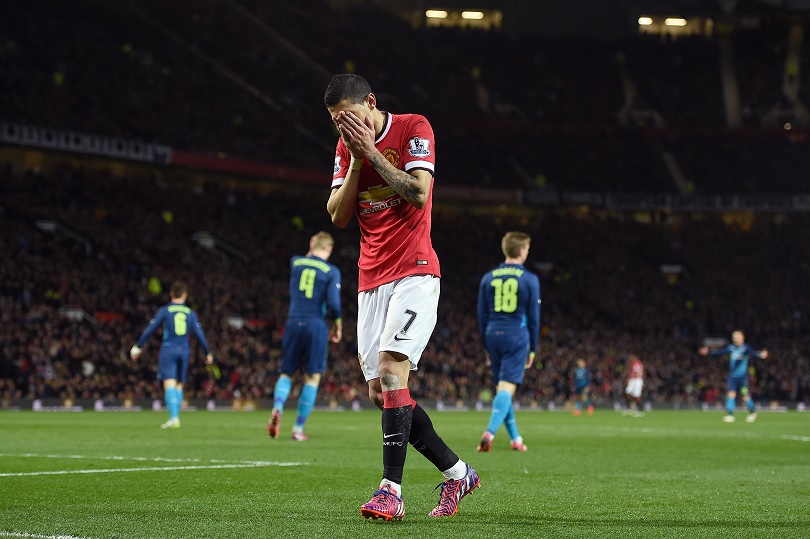
Of course, this correlation is no coincidence. While much of the culpability for Di Maria’s miserable spell at United has been assigned to the player – and his eventual departure heralded a litany of ungrateful appraisals that accused him of everything from on-pitch gutlessness to complicity in human rights abuses – that tide of one-way blame was only ever a simplified interpretation.
This has become especially obvious in light of a broader trend that has emerged this term: the form of almost all of United’s flair players has nosedived spectacularly under Van Gaal. Memphis Depay, Juan Mata, Ander Herrera, Anthony Martial and Wayne Rooney have all seen their output wither away in accordance with any penchant for joy, exuberance and risk-taking.
Perhaps more than any of those names, Di Maria is a player whose game relies on exactly the sort of high-risk manoeuvres that look to have been rendered heresy within the current United set-up. Maybe, then, there was more to the story than simple feebleness of character.
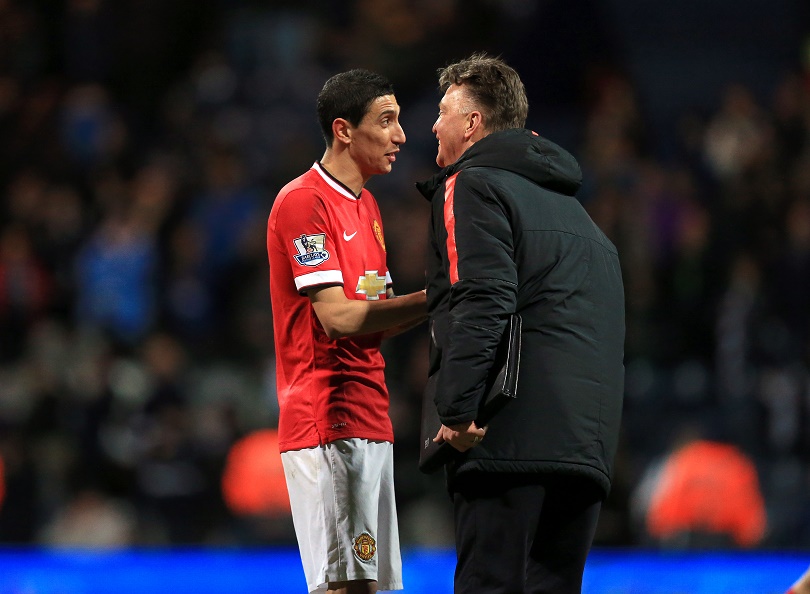
Personal problems
My move to PSG could have happened before this summer but it didn't for financial reasons and I ended up at United
Beyond the various tactical differences, though, lies something far more basic – and far more relatable. Quite simply, Di Maria is happy in Paris in a way he never was in Manchester.
"When a new foreign player arrives in a country that he doesn't know, it's not that easy," said his manager, Laurent Blanc, last month. “But the presence of more South Americans [at PSG] has certainly helped and I honestly think that the city of Paris and the French mentality suits him. That's what he's said to me anyway.”
Of his time at United, Di Maria has said: “My intention was always to stay at Madrid. I don't know what happened on the inside – these are things representatives deal with. My move to PSG could have happened before this summer but it didn't for financial reasons and I ended up at United.”
It was Sigmund Freud who said that "the daily work of earning a livelihood affords particular satisfaction when it has been selected by free choice." PSG’s new idol presumably feels similarly.

Di Maria's elusivity captured
Blame game
As anyone who was ever taught by a despondent supply teacher will know, work done miserably is often work done shoddily
It’s easy to castigate Di Maria for not showing the requisite enthusiasm at United but unhappiness can be a powerful force, even for a multi-millionaire. And as anyone who was ever taught by a despondent supply teacher will know, work done miserably is often work done shoddily. If nothing else, Di Maria’s blistering start to life in Paris is a reminder that, once all else is stripped away, football is still played by humans and as such, human elements factor into its outcomes above all else.
The only equation Blanc needs to solve is how to keep his star player smiling. “Once he feels more at ease on the pitch and in everyday life, I think that will be characterised by a second half of the season that will be even better than the first," believes the Frenchman. Over to you, Angel.
